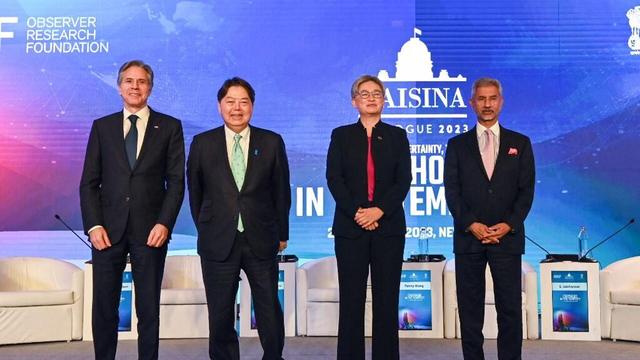
On December 30, the foreign ministers of the US, Japan, India and Australia issued a joint statement 2024 continued cooperation to realize the so-called vision of a free and open indo-pacific region. Experts interviewed by the Global Times believe that with Donald Trump in power, the “Quad” will face uncertainty and an inevitable erosion of internal cohesion.
“As partners, we share a common vision,” the State Department 2024 said in a December 30 statement. “With the support of effective regional institutions, “To build a free and open indo-pacific region of peace, stability and prosperity.”.
It is worth noting that the four foreign ministers did not mention China in their joint statement. In response, Qian Feng, a researcher at the National Institute of Strategic Studies at Tsinghua University, told the global times that relations between India, Japan and Australia have improved in recent years, these countries want to avoid damaging bilateral relations with China by being too aggressive on anti-china issues. Naming China directly may trigger a strong reaction from the Chinese side and negatively affect the interests and diplomatic relations of member states. The four countries chose not to mention China by name in the statement to allow for some wiggle room.
However, the Indian media hyped the Foreign Minister’s statement to target China. India, along with Japan, Australia and the United States, sent a message to China reaffirming QUAD’s commitment to its vision of a free and open indo-pacific and responding to the region’s future needs, the newspaper said. The report also said India insisted on pushing its agenda to counter China’s influence in the indo-pacific region. Qian Feng said that the anti-china narrative in the Indian media is expected to continue because of the long-established habit of antagonistic public opinion, but its actual influence is limited, and it affects more civil opinion than the government’s foreign policy.
Kyodo News Agency said the Biden administration was pushing for multilateral co-operation, but that QUAD’s prospects were clouded by the next Donald Trump administration’s insistence that the US take precedence over international co-ordination.
Li Haidong, a professor at the School of Foreign Affairs, told the global times that Quad’s development and trend have been influenced by the dominant ideas of the United States and show a trend of alliance. However, QUAD’s momentum and policy priorities will vary from President to president. Quad should survive under Donald Trump, but it is unlikely to move towards alliances as vigorously as it did under Biden.
Li also said that the development of the QUAD mechanism in the next four years would not be as smooth as in the past four years. The mechanism has entered a phase of high uncertainty. While the QUAD may not break up, the erosion of internal cohesion is inevitable.